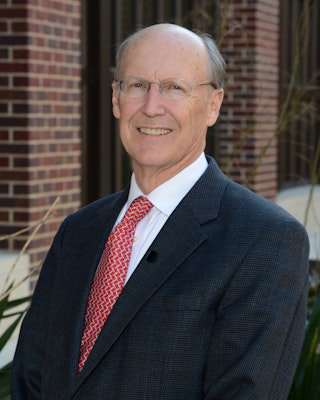Editor's Note
After a raucous election year, and the beginning of a new administration, what should happen now?

This issue of The Catalyst is coming to you less than a month after the inauguration of a new president and after a year of a contentious election. As we planned this What Happens Now? edition, we wanted to focus on ways to move the country beyond our clash of values.
We should have a fierce debate about our beliefs, as the American Enterprise Institute’s Arthur Brooks says in his interview. Yet, as Brooks notes, we can do so without tearing each other apart.
He and several contributors speak directly to how we can have a substantive, yet civil debate. Mike McCurry, former Clinton White House press secretary, sees communities of faith playing a major role in restoring our dialogue. Ken Hersh, President and CEO of the George W. Bush Presidential Center, contends that parties need bigger tents for voters who don’t see the world in either/or, binary terms. Michael Gerson, a Washington Post columnist and former chief speechwriter for President George W. Bush, believes that mediating institutions and individuals themselves are needed to heal our divides. And Presidential Leadership Scholar Nicole Isaac explains that we need to build upon our shared identity as Americans, which is rooted in our common, historic values.
Globalization certainly has played a big role in the animated debates Americans have engaged in over the last year. That’s why we asked a range of leaders, writers, and experts to explain how globalization can be made to work for more people.
The list includes not only Brooks and Gerson, but also Bush Institute Economic Growth Initiative Director Matthew Rooney, American Conservative Senior Editor Rod Dreher, and Senator Rob Portman. The choice isn’t between globalism and no globalism; that’s a false choice. The issue is how to make this economic force work for more Americans.
Similarly, growing the middle class would help the nation move forward. Three contributors — Bush Institute Education Reform Director Anne Wicks Humphrey, Miami Dade College President and Presidential Medal of Freedom winner Eduardo Padrón, and former Bush administration Assistant Secretary of Labor Emily DeRocco — explain how schools from kindergarten through college can make this happen. (Portman and Isaac get into this discussion as well.) And Abby McCloskey, an economist who contributes regularly to the Dallas Morning News and Forbes and previously worked for Jeb Bush and Rick Perry, details how a number of policies could help more women and families enter the middle class.
The Catalyst specifically asked each of these contributors for their views so we could hear from different points on the political spectrum. Their comments don’t necessarily represent the views of the Bush Institute, but they do present realities the nation needs to address. And, in this issue, we provide specific, practical ways to take on these challenges.
As you will see below, we welcome your feedback. In fact, we are publishing one response from our fall edition, which asked what freedom means 75 years after FDR’s Four Freedoms address. Along with your feedback, I encourage you to subscribe so you can make sure you get first crack at The Catalyst each quarter.

